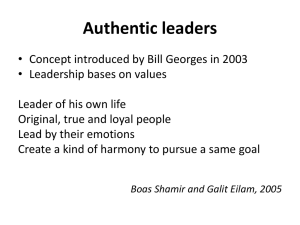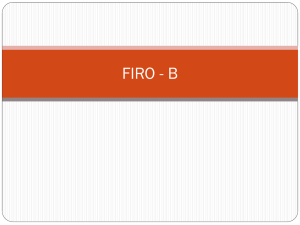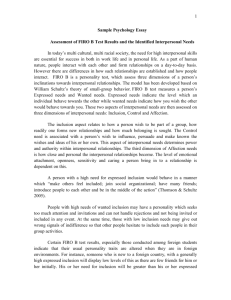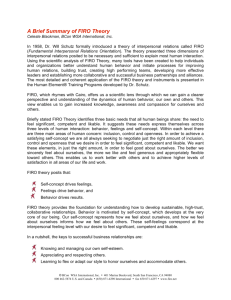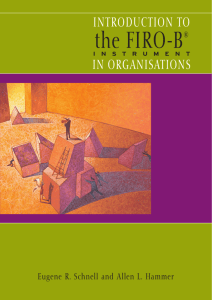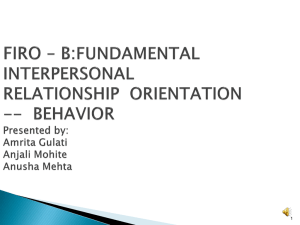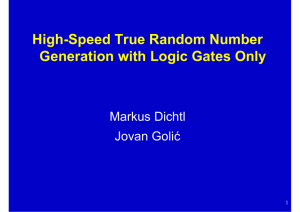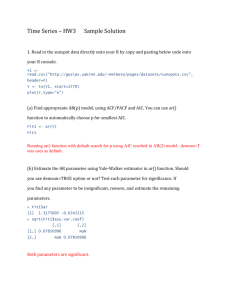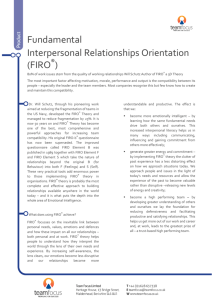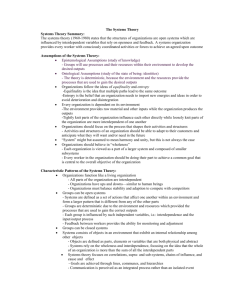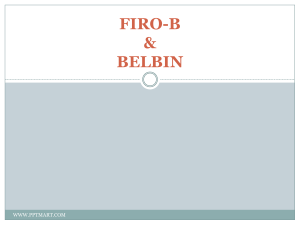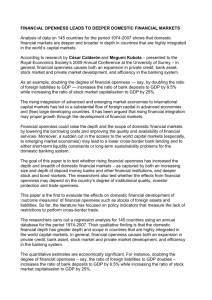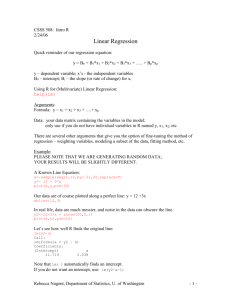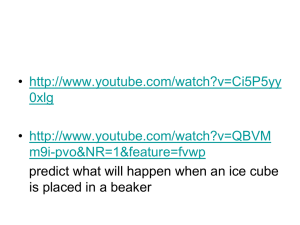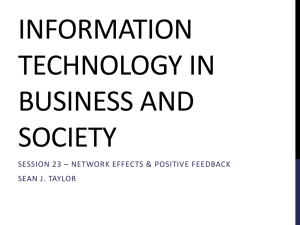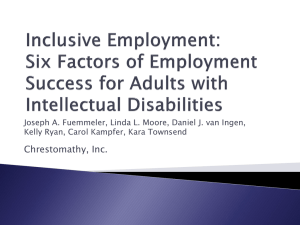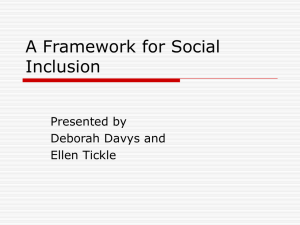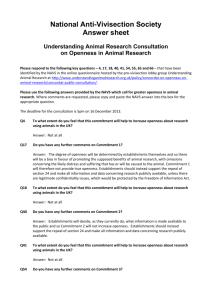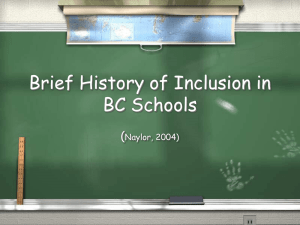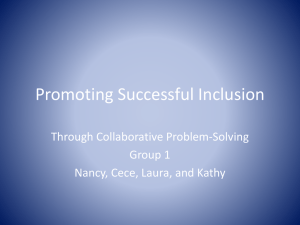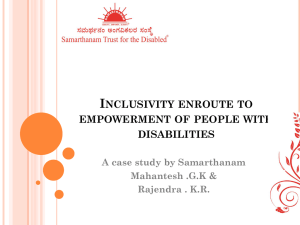Phase 3
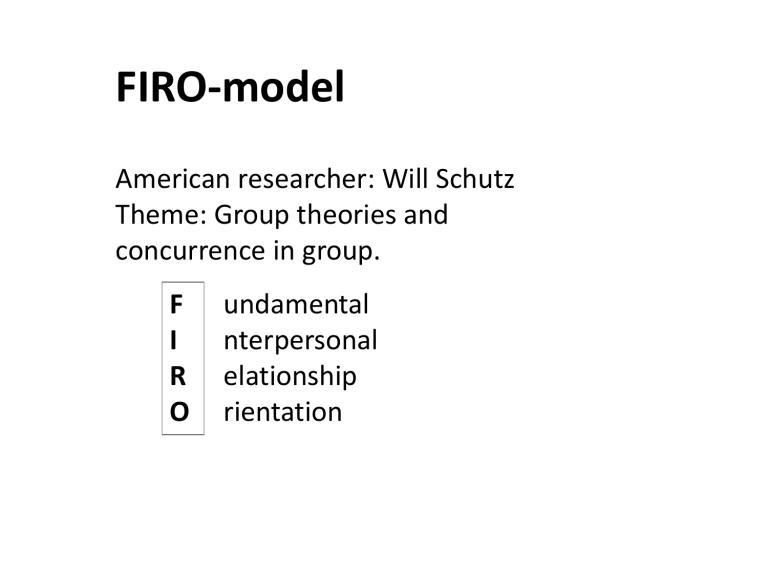
FIRO-model
American researcher: Will Schutz
Theme: Group theories and concurrence in group.
I
F
R
O undamental nterpersonal elationship rientation
The 3 developing phases
1. Inclusion
2. Control
3. Openness
Phase 1:
Inclusion
Phase 2:
Control
Phase 3:
Openness
Phase 1, Inclusion
• Am I allowed on board?
• A new group is created
• Rules for the team
• Team/group values
• Norms for our team?
• Goals – What are we striving for?
Phase
1
What do we want?
Phase 2, Control
• Groupmembers finding their role
• Am I competent enough?
• Who are the leaders?
• How much influence will I have?
• The battle for leadership!
• ”Mark your territory”
• Inner battles – ”Either run or stay and fight”?
• Who reacts?
– Interpersonal reaction – Works in the shadows
Phase
2
Defensive
– Open reaction – Openly takes a stand!
Offensive line
Phase 3, Openness
• Everyone knows there place and role.
• Everyone accepts there place
• Leadership is decided and accepted
• Everyone is important for the group
Phase 3
• Mutual dependence
• No more “those guys mades the dessisions” now everyone feels included.
Worth considering ….
• Team express:
Phase
1
Phase
2
”We have unity”
Phase 3
”We have great team morale”
• A lot of people are unaware what good unity and team morale is
• In Phase 1 or 2 you will not find effective groups
• The groups ”best” performance will only be achieved in phase 3.
Remember that different phases require different leadership!
• Phase 1
• The coach is an administrator/authoritarian pedagogue
– Direct instructions
– Sets the bar
• Phase 2
– Vigilance on running away or taking the fight
– If there is to much of this, the leader must intervene.
• Phase 3
– The person in charge is the accepted leader
– Can be found behind the group for support – “The rock in which the group leans on”
– The group experience passive leadership.
Group members act different in every phase
• Phase 1 Asks many questions to get conformation and support
• Phase 2 Afraid of asking questions, scared of loosing the position in the group.
• Phase 3 Not afraid to ask questions, express their opinions, Discuss to find better solutions.
Characteristics, FIRO 3
A team with
• Effective (group members)
• Harmony
• Team spirit
• Problem solver
• Natural Happiness
ONLY REAL TEAM IN FIRO 3
Teamwork by units (fives)
Were in FIRO are the team now?
One group of five
• We have been everywhere in all phases
• Must understand their role/roles better in fives/chaine and as a player
• Get better on how we talk to each other
• Accept what is said, look no reasons/excuses
• Right now in start of phase 2
What can we do to move forward?
• 1. Accept your role! Praise for the little things
(blocked shots, get puck out of zone)
• 2. How you talk/interact/react to teammates, know we are all in for the team
• 3. Those with confidence help built those who are struggling. Give energy to those who need
• 4. We have 25 guys in room who have to stick together, no one is gonna help us
• 5. Everybody contribute, not every line will score all nights. Help each other!
